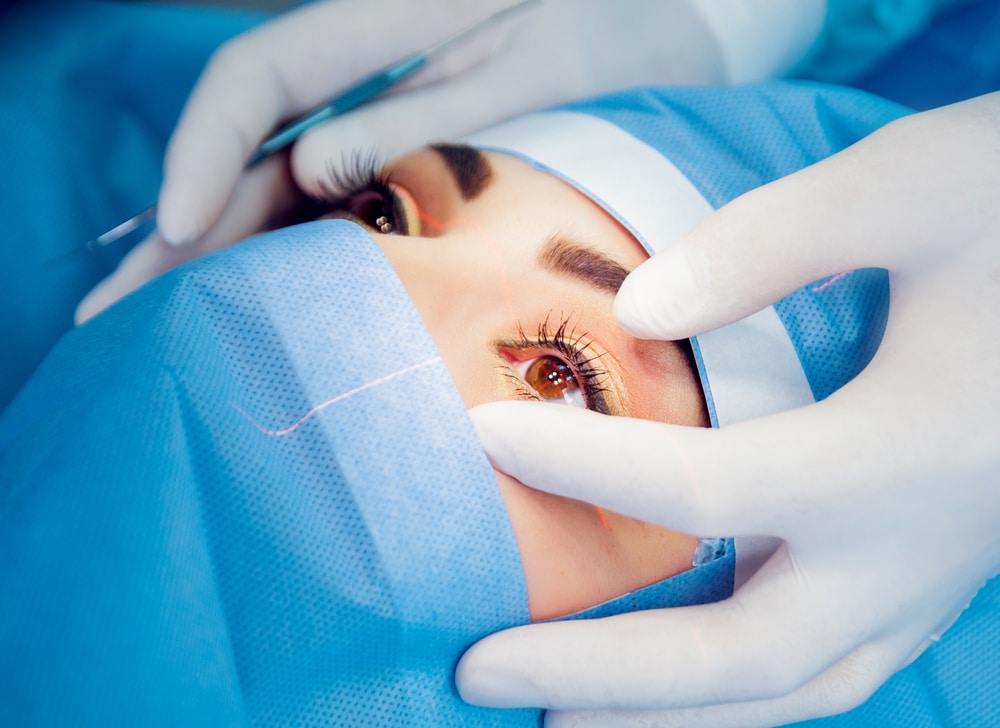As we age, our eyes go through changes that occur naturally. One of those changes can be the development of a cataract, a condition that impairs vision. According to the National Eye Institute (NEI), cataracts affect more than half of all Americans aged 80 or older.
Luckily, cataract patients have surgical options that can fully rid them of the visual impairment and help them enjoy the lifestyle they had before cataracts. However, some patients have been asking if cataracts can come back after surgery. This blog will clear up any confusion or concerns.
What Is a Cataract?
A cataract is a clouding of the clear lens of your eye. Cataracts can develop in both eyes, although they don’t usually do so at the same rate. This can lead to visual differences between two eyes affected by cataracts. Some cataract patients describe their visual impairment as seeing through a foggy window. You can imagine how vision like that would interfere with routine tasks and the general enjoyment of life.
Common Cataract Symptoms:
- Decreased Night Vision
- Light Sensitivity
- Faded or Yellowed Color Appearance
- Double Vision
- The Appearance of Light “Halos”
- Repeatedly-Changing Prescriptions
Read More: Types of Cataracts: What They Are and What Causes Them
How Cataract Surgery Works
If you’re experiencing cataract symptoms or have already been diagnosed with a cataract, you’re probably looking for a solution. Unfortunately, there is no medical treatment that can prevent or reverse cataract development. However, surgery might be your best bet at restoring your vision and the ability to get back to living life to the fullest. Here’s how cataract surgery works:
Before Cataract Surgery
Like all surgical procedures, the first step is getting and confirming a cataract diagnosis. You’ll meet with an expert ophthalmologist to discuss your condition and what type of surgery would work best for you. Cataract surgery involves implanting an Intraocular Lens (IOL) that replaces your cataract-affected one. There are several IOL options, and you and your ophthalmologist will discuss which is best for your lifestyle.
During Cataract Surgery
Cataract surgery involves removing your eye’s natural lens and inserting an IOL in its place. The surgery can last anywhere from 30 minutes to an hour. The incisions will heal on their own, which means no stitches.
After Cataract Surgery
Following cataract surgery, eye drops are typically administered to aid the recovery process. However, dropless cataract surgery offers a smoother way for patients to recover. If you choose a dropless surgery, the surgeon will administer antibiotics and anti-inflammatories during surgery, creating a more relaxing postoperative period. Be sure to discuss this option with your ophthalmologist before cataract surgery.

Can Cataracts Come Back After Surgery?
Have you recently had cataract surgery and are now worried they might come back? Rest assured, cataracts cannot regrow after surgery. The IOL in place of your natural lens cannot grow a cataract. However, the lens capsule can become cloudy after surgery, resulting in symptoms similar to what you were experiencing with cataracts.
You may hear this referred to as “secondary cataracts,” but the actual term is posterior capsular opacification. It’s a rare occurrence but does happen to some cataract patients, sometimes months or years after their initial cataract surgery.
Does Cataract Surgery Ever Need To Be Repeated?
If you are affected by a secondary cataract or posterior capsular opacification, you may need a second treatment—but it won’t be another cataract surgery. First, your ophthalmologist will confirm that a secondary cataract is affecting your vision. Then they will recommend a treatment that can be done quickly and relatively painlessly.
Using a special laser, they’ll create an opening in the posterior capsule to clear the clouded membrane. The process only takes about five minutes and afterward, your vision should be restored.
Read More: When Do I Need Cataract Surgery?
Get More Information About Cataracts
Still have more questions about cataracts? As one of Michigan’s top eye care providers, you can use us as a valuable resource for determining if cataract surgery is right for you. We offer state-of-the-art laser cataract surgery treatment that helps patients reach the best possible outcomes.
Schedule a consultation to discuss your cataract surgery options. Our team is happy to help you discover an option that works best for you.
Comments are closed.



